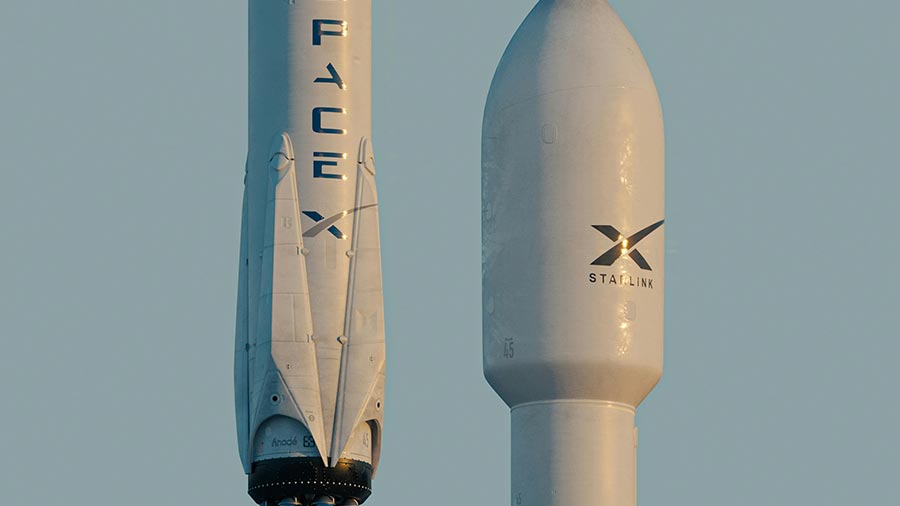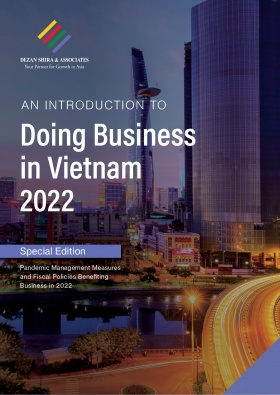Why Binh Duong is a Magnet for FDI in Vietnam
Vietnam’s Binh Duong province, part of the Southern Key Economic Region is fast emerging as a favorite for foreign investors. The province, with its 30 industrial zones is second only to Ho Chi Minh City, in terms of FDI attraction. With its renewed focus on high-tech industries, development of new industrial zones, and expected economic growth of 8-8.5 percent, the region will continue to be a priority for foreign investors.
In 2021, Binh Duong province observed a trade surplus of US$6.8 billion, with exports totaling US$31.5 billion and imports of US$24.6 billion. It contributed VND 61.2 trillion (US$2.6 billion) to the State budget, 4 percent higher than the yearly plan.
The 2022 GRDP per capita is expected to reach US$7,478, higher than VND 153.6 million (US$6,650) in the previous year. The province also targets the Industrial Production Index (IIP) to grow 8.9 percent and foreign trade to gain 17 percent this year.
Binh Duong plans to contribute VND 60 trillion (US$2.5 billion) to the State budget, attract about US$1.8 billion in foreign direct investment (FDI), and raise total social investment by 10 percent in 2022 while creating about 35,000 new jobs.
To this end, Binh Duong authorities intend to give priority to developing supporting industries in the manufacturing and processing sector, with the use of advanced and environmentally-friendly technologies, in order to allow more local enterprises to enter global value chains.
Regional competition
According to the Provincial Competitiveness Index (PCI) 2021, Bing Duong ranks as the sixth most competitive province in the country, dropping two places compared to 2020. The rankings were led by Quang Ninh, Dong Thap, and Long An.
Binh Duong’s high ranking can be attributed to the effort of the province to cut administrative procedures, reducing the burden of complying with conditional business licensing procedures and solving difficulties for businesses.
| The Infrastructure Index (2021) Rankings | |
|---|---|
| 1 | Binh Duong |
| 2 | Quang Ninh |
| 3 | Da Nang |
| 4 | Dong Nai |
| 5 | Hanoi |
Source: VCCI
Most noticeably, Binh Duong also tops the infrastructure index in the recent PCI 2021. The infrastructure index, another branch of the PCI assessment, evaluates four subindices, including (1) industrial zones/clusters, (2) roads and transportation, (3) basic utilities, (4) telecommunication, and (5) other infrastructure.
Binh Duong’s leading foreign direct investment
2022 FDI
After 25 years of inviting investors and with a strong flow of foreign investment (FDI) capital into Binh Duong, it has had a positive impact on socio-economic development.
In 2021, US$9.01 billion of total registered investment came from 985 projects licensed in previous years that adjusted their capital, a significant increase of 40.5 percent over last year. Of that, Binh Duong received a notable additional investment from the Polytex Far Eastern Limited Company factory project, which added US$610 million to its original capital to its factory in the province.
In addition, accumulated up to now, Binh Duong ranks second in the country in terms of FDI attraction with more than 4,040 projects with a total capital of US$39.4 billion.
So far this year, the province attracted US$1.6 billion in FDI, 3.6 times higher than that of the same period last year.
Leading investors
Binh Duong is home to more than 3,400 companies from 64 countries and territories and trades with 200 nations.
In the first quarter of 2022, Denmark was the largest investor in Binh Duong, with US$1.3 billion, accounting for 78.9 percent of the total registered capital thanks to the factory by Denmark-based Lego Group. In mid-March, Binh Duong granted an investment certificate to the LEGO Group for a project in the VSIP III Industrial Park with a capital of over US$1 billion. This is LEGO’s sixth-largest factory globally and second in Asia, with the first built-in Jiangsu, China.
Singapore is also another major investor of Binh Duong. Singapore accounts for one-fifth of the total FDI invested in Binh Duong with 260 enterprises including large corporations that have effectively and successfully invested and operated in the province.
Along with Singapore, South Korea is one of the leading investors in Binh Duong with more than 800 projects and total capital of about US$3.4 billion. Some examples of Korean projects with large investment capital include the Kumho Vietnam Co. Ltd., which invested nearly US$130 million to produce car tires, DCT Partners Vietnam Co. Ltd. in the hotel, commercial center, and high-rise apartment projects with a total capital of US$100 million, Orion Vina Food Company Limited in confectionery production with a total capital of US$60 million, and the Lotte Group with an investment of US$40 million in a shopping center among others.
Infrastructure
Binh Duong provincial authorities plan to complete a number of key transport infrastructure projects this year and start others to maintain its leading position in attracting foreign investment and act as a key for recovery as the country reopens.
Transport connectivity
Specifically, the province is focusing on implementing projects, including upgrading and expanding highways such as National Highway 13, Ho Chi Minh City – Thu Dau Mot – Chon Thanh expressway, belt roads 3, 4, and the Song Than intersection. These projects, implemented under the build-operate-transfer (BOT) and the PPP models, would help increase connectivity with the rest of the country, especially with Ho Chi Minh City, the Mekong Delta, the Southeast region, and the Southern Central Highlands.
The local authority is determined to complete these projects in the 2021-2025 period by setting up teams to supervise the implementation process. Additionally, the closest international airport and seaport are within a 40 km radius.
Industrial Parks
Binh Duong has 30 industrial parks (IP) with a total area surface of over 12,670 hectares and an occupancy rate of 87.4 percent as well as another 12 industrial clusters with a total area surface of 790 hectares and an occupancy rate of 67.4 percent.
Some of the most developed IPs in the province include VSIP, VSIP2, My Phuoc IP, and Dong An IP. Particularly for this year, the province has started the construction of two 1,000-hectares industrial parks to increase the supply of industrial land with an eye on foreign investors.
The first phase is on the Vietnam-Singapore III (VSIP III) industrial park covering 1,000 hectares in Tan Uyen Town and Bac Tan Uyen District, which started in March.
The project with a total investment of US$280 million got the green light from the government in November 2016. This is the 10th project of VSIP, a leading industrial park developer in Vietnam.
The other project will be on the 1,000-hectare Cay Truong industrial park in Bau Bang District which is expected to begin in the second quarter of this year. With these IPs, the province would prioritize high-tech tenants and labor-intensive industries such as apparel and footwear.
Industrial parks have helped Binh Duong transform from a rural area into an industrial hub. Statistics show that industries and services account for 97 percent of the province’s total economic output.
Sustainable development
For now, there is a provincial project to ensure a skilled workforce for the period 2018-2020, with a vision of 2025. Currently, 100 vocational schools in the province have enrolled about 30,000 students, bringing the province’s vocational training rate to 80.5 percent.
Binh Duong also has developed a smart city project to become one of the leading provinces in the country with global competitiveness in attracting, training, and developing scientific and technical talent.
Additionally, the province is focussing on developing policies to attract mid-level managers, experts, and high-tech workers.
Opportunities for investment
Binh Duong authorities have called for major investment in the fields of automobile mechanics, electronic technology, supporting industries for automobile mechanics, electronics, and high-tech agriculture. This should be the space for investors to inject capital into as the authorities have also proposed plans and policies to encourage investment in these specific areas.
Binh Duong has also released several incentives such as land and water surface rental exemptions as per relevant laws. Businesses investing in the province can also benefit from CIT incentives with a preferential tax rate of 10 percent for 15 years and tax exemption for four years, followed by a 50 percent reduction of payable tax for the next nine years for certain projects. Import tax exemptions are also available for hi-tech agricultural projects.
About Us
Vietnam Briefing is produced by Dezan Shira & Associates. The firm assists foreign investors throughout Asia from offices across the world, including in Hanoi, Ho Chi Minh City, and Da Nang. Readers may write to vietnam@dezshira.com for more support on doing business in Vietnam.
We also maintain offices or have alliance partners assisting foreign investors in Indonesia, India, Singapore, The Philippines, Malaysia, Thailand, Italy, Germany, and the United States, in addition to practices in Bangladesh and Russia.
- Previous Article Vietnam Approves Tax System Reform Strategy to 2030
- Next Article COVID-19 in Vietnam: Travel Updates and Restrictions






























